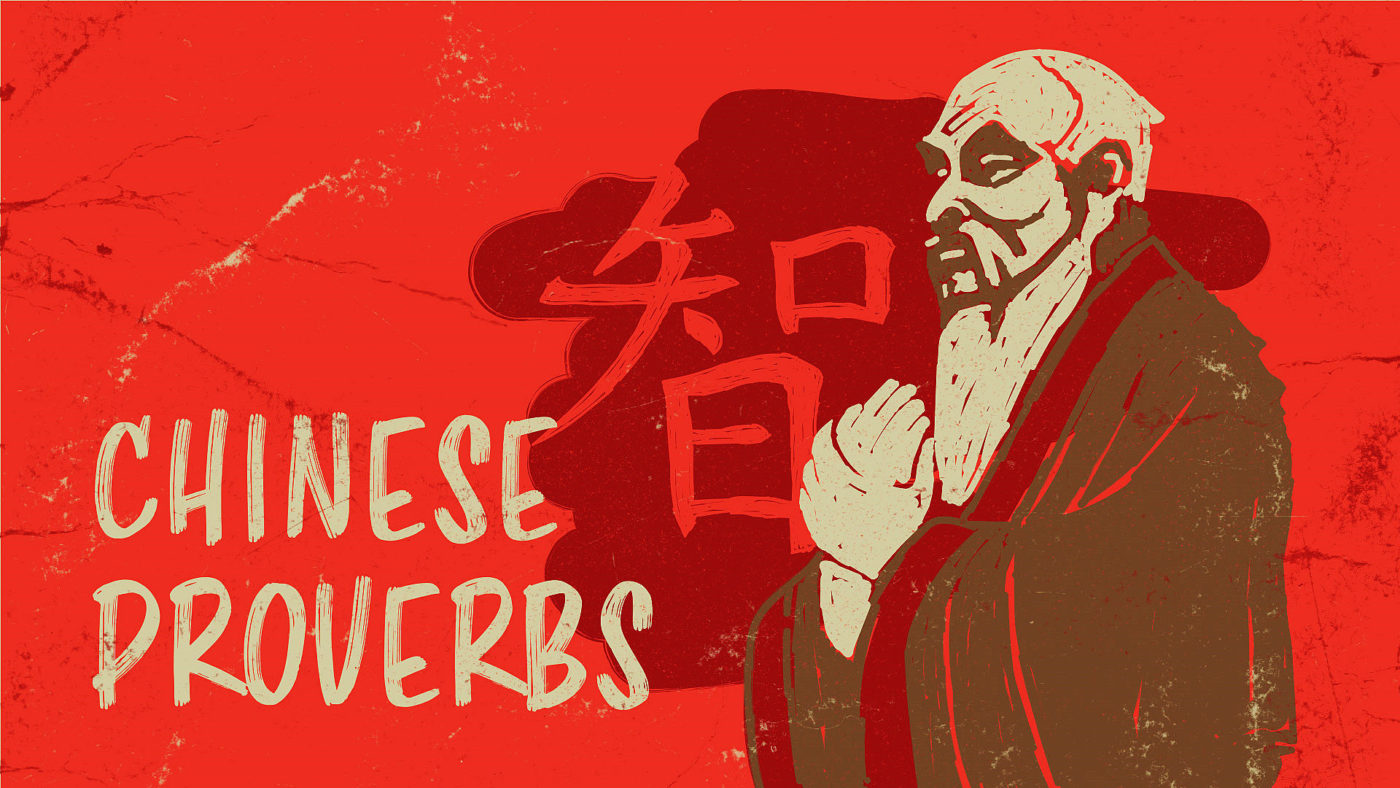Chinese culture is rich with ancient wisdom, and many of these insights have been passed down through the ages in the form of old sayings. These sayings often contain valuable lessons that can be applied to everyday life, from personal relationships to business dealings. Here are the top 10 Chinese old sayings and what you can learn from them.
-
不作不死。(Bù zuò bù sǐ.)
Translation: If you don’t do anything, you won’t die.
Meaning: This saying encourages taking action and facing challenges head-on. It suggests that inactivity is not only unproductive but also potentially dangerous. It’s better to take risks and face the consequences than to do nothing at all.
Lesson: Don’t be afraid to take risks in life, whether it’s in your personal or professional pursuits. You won’t get anywhere by standing still, so take action and embrace new opportunities.
-
近水知鱼性,近山识鸟音。(Jìn shuǐ zhī yú xìng, jìn shān shí niǎo yīn.)
Translation: By the water, learn the fish’s nature; by the mountain, learn the bird’s song.
Meaning: This saying encourages us to be observant and to learn from our surroundings. By paying attention to the natural world, we can gain valuable insights and knowledge.
Lesson: Take time to observe your surroundings and learn from them. Whether it’s watching how people interact with each other or studying the habits of animals in the wild, there is always something to be learned from the world around us.
-
三人行必有我师。(Sān rén xíng bì yǒu wǒ shī.)
Translation: In a group of three, there must be one person I can learn from.
Meaning: This saying emphasizes the importance of learning from others and surrounding yourself with people who have knowledge and experience that you can benefit from.
Lesson: Seek out people who have skills and knowledge that you lack and learn from them. Don’t be afraid to ask for help or advice from those who are more experienced than you.
-
不经一番寒彻骨,怎得梅花扑鼻香。(Bù jīng yī fān hán chè gǔ, zěn dé méi huā pū bí xiāng.)
Translation: Without experiencing bitter cold, how can one appreciate the fragrance of the plum blossom?
Meaning: This saying suggests that hardships and challenges are necessary to appreciate the good things in life.
Lesson: Don’t be discouraged by setbacks or difficult times. Instead, view them as opportunities for growth and learning. Without experiencing hardship, it’s difficult to truly appreciate the good things in life.
-
不畏浮云遮望眼,自缘身在最高层。(Bù wèi fú yún zhē wàng yǎn, zì yuán shēn zài zuì gāo céng.)
Translation: Don’t be afraid of the clouds blocking your sight, for you are already at the highest level.
Meaning: This saying encourages people to have confidence in their abilities and to not be deterred by obstacles or setbacks.
Lesson: Believe in yourself and your abilities, and don’t let setbacks or challenges stop you from achieving your goals. With hard work and determination, you can overcome any obstacle and reach your highest potential.
-
不到黄河心不死 (bú dào Huáng Hé xīn bù sǐ)
This idiom translates to “Until you reach the Yellow River, you won’t give up.” The Yellow River, or Huang He, is one of the longest rivers in China and is known for its turbulent waters. In ancient times, the Yellow River was seen as a symbol of perseverance and determination because of its strong current. This saying emphasizes the importance of perseverance and never giving up until you have exhausted all possible options. It encourages people to keep pushing themselves until they have achieved their goals.
-
滴水穿石 (dī shuǐ chuān shí)
This idiom means “Dripping water wears away a stone.” This saying is used to describe the power of persistence and determination. Just as a small drop of water can eventually wear away a hard stone, persistent efforts can lead to great achievements. It encourages people to work hard and never give up, even when the task seems impossible.
-
学无止境 (xué wú zhǐ jìng)
This idiom means “Learning has no limits.” It emphasizes the importance of lifelong learning and continuous self-improvement. It encourages people to be curious and to seek knowledge and wisdom throughout their lives. The saying implies that no matter how much we learn, there is always more to discover and explore.
-
人心不足蛇吞象 (rén xīn bù zú shé tūn xiàng)
This idiom means “A person’s greed is like a snake trying to swallow an elephant.” It warns against the dangers of greed and the desire for more than what one needs. The saying implies that excessive greed can lead to destruction and disaster. It encourages people to be content with what they have and to avoid excessive desires and ambitions.
-
工欲善其事必先利其器 (gōng yù shàn qí shì bì xiān lì qí qì)
This idiom means “If you want to do a good job, you must first sharpen your tools.” It emphasizes the importance of being well-prepared and having the right tools and resources to achieve success. It encourages people to invest in themselves and their skills and to be well-equipped for any challenges they may face.
In conclusion, these old sayings are still relevant and meaningful today. They offer valuable insights and wisdom that can help us navigate the challenges of life and achieve our goals. Whether it’s perseverance, hard work, self-improvement, or contentment, these Chinese idioms offer a wealth of knowledge that can inspire us to be our best selves.

